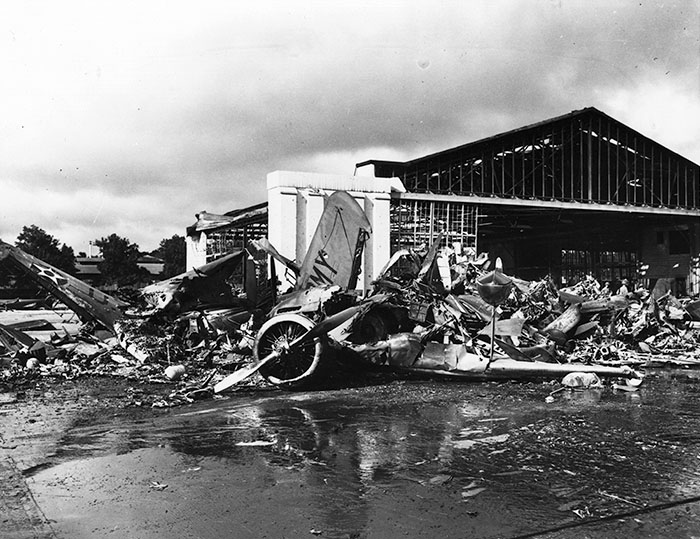World War II ends in September of 1945. Japanese Americans are released from internment camps and face the reality of starting over.
After the War

During the Internment Experience, you imagined what it felt like to prepare for internment, to live inside a “prison,” and to return to the world you knew before and try to start again. You faced challenges. You persevered. You got a glimpse of what it was like.
But for tens of thousands of Japanese Americans—this was real life. The decisions they made affected the outcome of their lives. Some were forced to abandon their homes, some enlisted and risked their lives fighting for the freedoms they were being denied, and some were so disenfranchised by their own country, they renounced the very thing they were fighting so hard to hold on to—their citizenship.
For many interned Japanese Americans, these injustices are indelible.
Here are three firsthand stories of post-war life as experienced by those who suffered internment.
Happy Homecoming
When Al Tsukamoto returned to California after three years in an internment camp, his grape farm was waiting for him—thanks to the compassion and hard work of a California agriculture inspector. As hundreds of fellow farmers were being sent to camps, Bob Fletcher ignored the resentment of his neighbors and quit his job to help a Japanese American family in desperate need of losing their farm. With no experience growing flame tokay grapes, Fletcher agreed to manage Tsukamoto’s 90 acres. if he could pay the taxes and mortgages while the Tsukamoto family was interned, Fletcher could keep the profits. But when the family returned home, they discovered Fletcher kept only half the profits. The other half was waiting for them in the Tsukamotos’ bank account.
Rejoin Society
While in an internment camp in 1942, Mitsuye Endo, with the encouragement of a civil rights attorney, filed a lawsuit arguing it was illegal to detain someone who had declared allegiance to the United States. Two years later, the Supreme Court unanimously agreed, which helped bring an end to Japanese American internment camps.
Even though Endo was at the center of a landmark civil rights case, she avoided the public spotlight and rarely brought up the details of her case with her own children. Her daughter, Terry DeRivera, said she didn’t know her mother had played such a significant role in American history until she was in her 20s, but said she was proud of what her mother did for Japanese Americans.
Like Endo, some Nisei—those born in America to Japanese American immigrant parents—keep their internment experiences to themselves, choosing to look forward, beyond the injustices they survived. Other Nisei are more vocal about their internment experience.
Fred Korematsu, for example, who challenged internment in the Supreme Court, ultimately was awarded the Medal of Freedom by President Clinton in 1998. Carrying on his legacy, his daughter founded the Fred T. Korematsu Institute, whose mission is to educate and advance racial equality, social justice and human rights for all.
Move To Japan
Regardless of his United States citizenship and military service in World War I, Joseph Yoshisuke Kurihara was forced into the Manzanar internment camp when World War II began. During the nearly four years he was there and at Tule Lake segregation camp, Kurihara became a controversial and outspoken leader of Japanese American resistance. So angered by the way his government had mistreated him, Kurihara renounced his U.S. citizenship when President Roosevelt signed the Renunciation Act of 1944. The following year, Kurihara boarded a ship for Japan—only to be met by a country devastated by war, poverty and homelessness. Today many remember Kurihara as a civil rights hero, who despite the personal cost, chose Renunciation in his pursuit of justice.
Formal Apology

In 1988—more than 40 years after the camps close—the US government issues a formal apology for the relocation of 120,000 Japanese-American residents to internment camps. The government also grants $1.6 billion in reparations to all survivors of Japanese American internment camps, which is about $20,000 to each internee. In recording their experiences, many survivors of the camps say that money doesn’t erase the injustice of Japanese American internment camps. Can you empathize with Japanese Americans who feel this way after they were denied their civil liberties and forced to make choices under duress?
Learn more on our Resources page. And please share this website to raise awareness of Japanese American internment.
